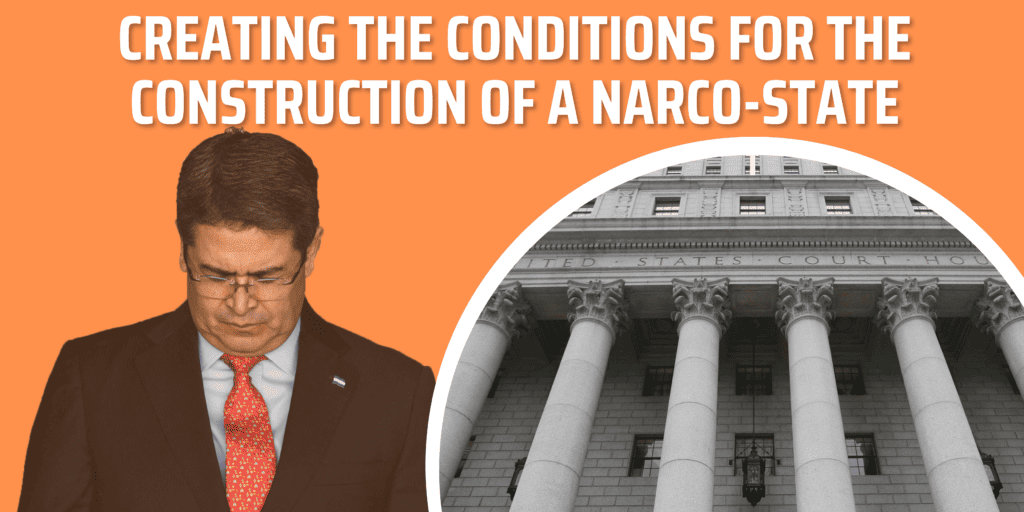
U.S. Prosecutors write
“During the summer of 2009, the sitting Honduran President was removed from office following a coup d’état. After the coup, the defendant [Juan Antonio “Tony” Hernández, Juan Orlando Hernández’s brother] met with CW-3 [collaborating witness 3] to discuss the situation. The defendant indicated that the coup had improved the chances that CC-3 [Porfirio “Pepe” Lobo] and CC-4 [Juan Orlando Hernández] would win in the elections later that year, and reiterated his interest in a drug-trafficking partnership.”
— The Government’s motions In Limine, document #78, filed 08/02/2019
Summary of the coup
On June 28, 2009, President Manuel Zelaya was overthrown by the U.S.-trained Honduran military. In the weeks and months following the coup, Canadian and U.S. officials barely condemned the coup and said little about the months of state-led violence against the mass social movement (later called the National Front of Popular Resistance) that took to the streets. In the coming months, the U.S. and Canada showed their true colors including working to prevent Zelaya from returning to Honduras, failing to suspend aid or classify the overthrow as a coup, and continuing to back the post-coup regime with political and financial support.
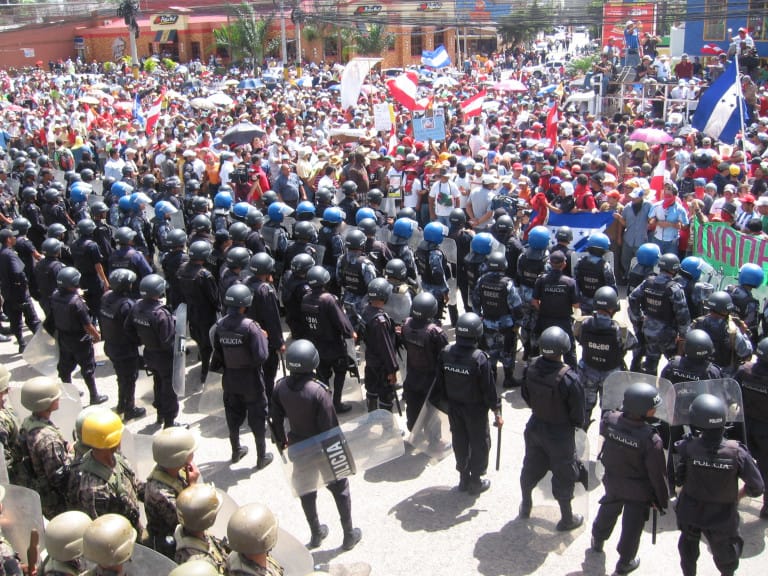
On the Role of the United States
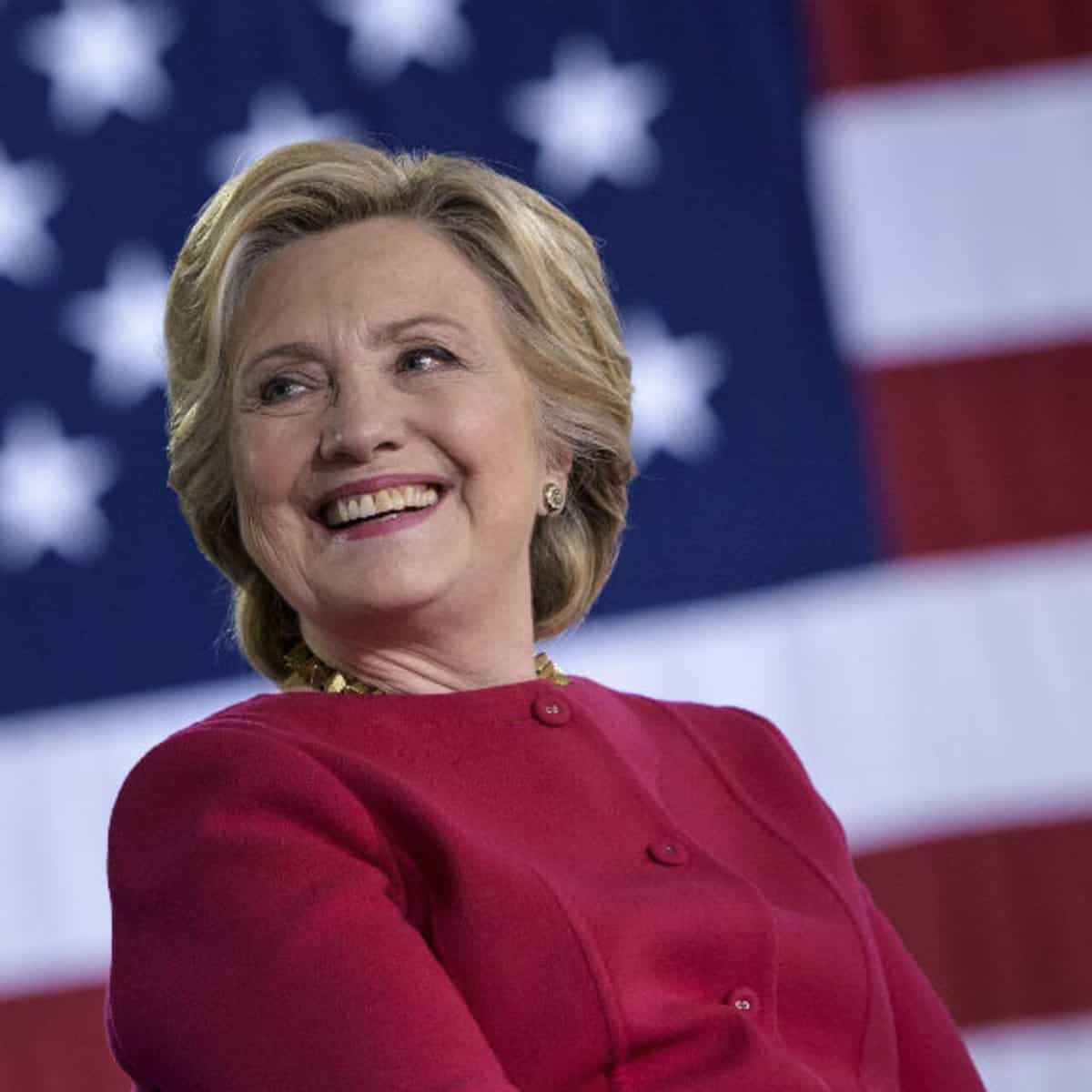
In the democratic debate in March 2016, Hilary Clinton, who was the Secretary of State during the 2009 coup under President Obama was asked about her decisions related to the coup in Honduras. Clinton responded:
“Well, let me again try to put this in context. The legislature, the national legislature in Honduras and the national judiciary actually followed the law in removing President Zelaya. Now I didn’t like the way it looked or the way they did it but they had a very strong argument that they had followed the constitution and the legal precedence. And as you know, they really undercut their argument by spiriting him out of the country in his pajamas, where they sent the military to take him out of his bed and get him out of the country. So this began as a very mixed and difficult situation.
If the United States government declares a coup, you immediately have to shut off all aid including humanitarian aid, the Agency for International Development aid, the support that we were providing at that time for a lot of very poor people, and that triggers a legal necessity. There’s no way to get around it. So our assessment was, we will just make the situation worse by punishing the Honduran people if we declare a coup and we immediately have to stop all aid for the people, but we should slow walk and try to stop anything that the government could take advantage of without calling it a coup.”
In other words, as the Washington Post writes, “Clinton had no problem with the forced removal of a democratically elected leader of a country; she only took issue with the fact that things got a little messier than she would have liked.”
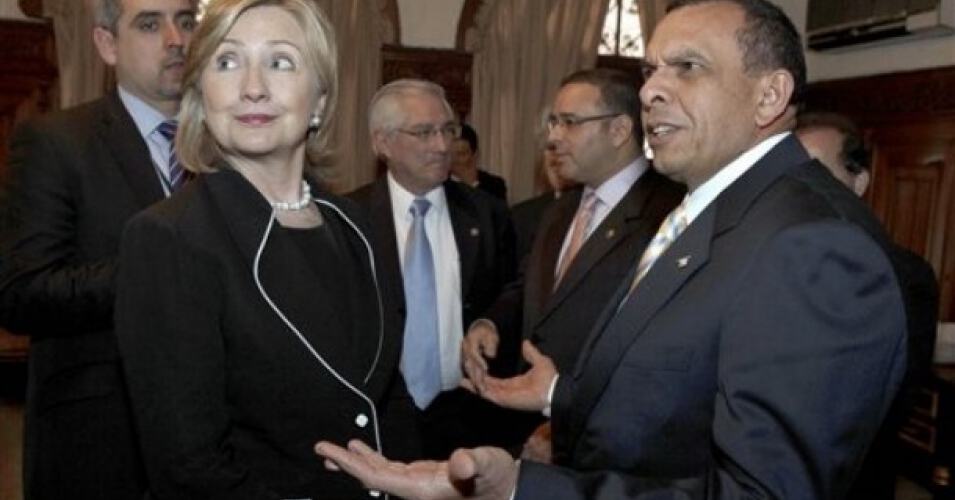
Alex Main from CEPR writes about the Obama administration’s position on the coup:
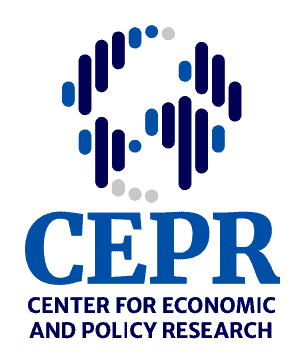
“… the Obama administration remained stuck it its default position as regional hegemon, adopting a position of complacency toward the coup government by failing to carry out any effective sanctions and by never clearly calling for Zelaya’s reinstatement.”
—- Alex Main, in ‘A New Chapter of Engagement’: Obama and the Honduran Coup published in NACLA on January 5, 2010.
The NCR writes about the U.S. training for the Honduran military involved in the coup:
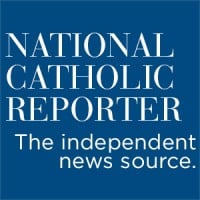
“The general who overthrew the democratically elected president of Honduras is a two-time graduate of the U.S. Army School of the Americas, an institution that has trained hundreds of coup leaders and human rights abuses in Latin America.”
— Linda Cooper and James Hodge, in ‘Honduras coup leader a two-time SOA graduate’ published in NCR on June 29, 2009.
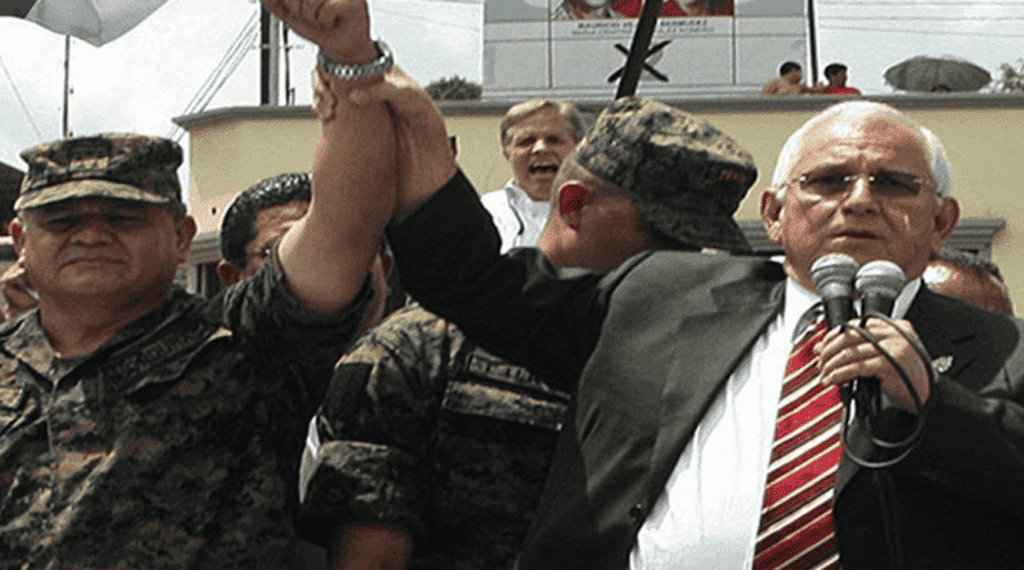
On the Role of Canada

“With political tensions increasing in Honduras, two days before the coup the OAS passed a resolution supporting democracy and the rule of law in that country. Ottawa’s representative to the OAS remained silent on the issue … Eight hours after Zelaya’s ouster last Sunday morning a Foreign Affairs spokesperson told Notimex that Canada had ‘no comment’ regarding the coup.”
— Yves Engler, in ‘Canada and Honduras’ published in The Bullet on July 7, 2009.
The coup’s impacts remain
The coup d’état is one of the most important moments in Honduras’ modern history. It sparked the beginning of 12 years of violence, 12 years of ‘business is usual’ and ‘Honduras is open for business’ for the U.S.-led ‘international community’, foreign companies and the rise of a corrupt, narco-state that received support from both North American countries. Its legacy continues to wreck havoc in the small Central American country.
